May
11
2010
Thoughts on 2 Corinthians 4
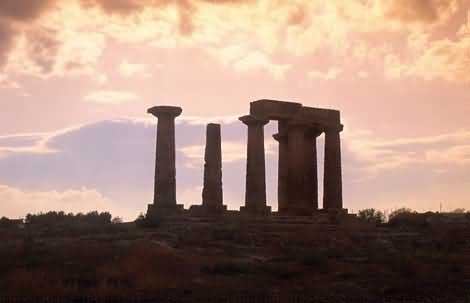
One thing I have realised over the last few years is how little the New Testament is commonly taught in the context of God’s “worship economy.” This is mostly due to the fact that the destruction of the Herods’ temple—or at least its significance—doesn’t even register on most Bible college lecturers’ radar, let alone that of the average Christian. We understand why the temples of the pagan gods were abandoned. Do we understand that the Temple of the true God had become a synagogue of Satan?
Continue reading
Comments Off | tags: Commentary, Corinthians, Literary Structure, Paul | posted in Biblical Theology, Christian Life
Apr
19
2010
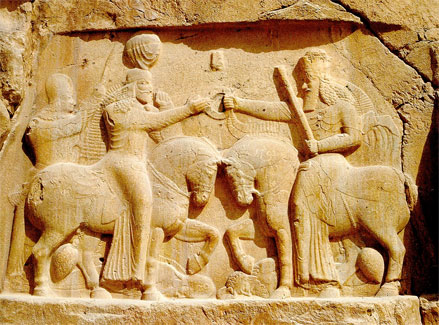
Ralph Smith helpfully applies the five point Covenant model to the history of Israel between the captivity and Christ:
1) Transcendence: God’s sovereign control over the nations was revealed in this period of the old covenant more than any other. Daniel foresaw the whole history of the world from the time of Babylon to the time of establishment of the kingdom of the Messiah (Dan. 2:27ff.; 7:1ff.). Clearly the kingdoms of this world were in His hand and He was guiding history where He willed. For the Jews as a nation, this greater revelation of God’s Kingship was important for they would be apparently in the hands of unbelieving rulers through much of this period, but the fact that God had predicted the history of the entire era from the beginning put all of this in a different light. The Jews learned anew that “The king’s heart is in the hand of the LORD, as the rivers of water: He turneth it whithersoever He will” (Prv. 21:1).
Continue reading
Comments Off | tags: Covenant Theology, Paul, Ralph Smith | posted in Biblical Theology, Quotes, The Restoration Era
Mar
23
2010

Victor from Brazil has wrapped his head around Totus Christus with lightning speed and sent a couple of insightful applications to the New Testament. As with my stuff, no one is being dogmatic. But the continued evidence for this is overwhelming. The big question is, was Paul doing this deliberately?
Victor has some sublime observations in here. As always, these will make sense (or more sense) to you if you have read the book.
Comments Off | tags: Bible Matrix, Paul, Totus Christus | posted in Totus Christus
Feb
23
2010
or Crops and Creeps
 “And because of the surpassing greatness of the revelations, for this reason, to keep me from exalting myself, there was given unto me a thorn in the flesh, a messenger of Satan to buffet me, in order to keep me from exalting myself. Concerning this I entreated the Lord three times that it might depart from me. And He has said to me, ‘My grace is sufficient for you, for power is perfected in weakness.’ Most gladly, then, I will rather boast about my weaknesses, that the power of Christ may dwell in me. Thus, I am well content with weaknesses, with insults, with distresses, with persecutions, with difficulties, for Christ’s sake; for when I am weak, then I am strong.” —2 Cor. 12:7-10
“And because of the surpassing greatness of the revelations, for this reason, to keep me from exalting myself, there was given unto me a thorn in the flesh, a messenger of Satan to buffet me, in order to keep me from exalting myself. Concerning this I entreated the Lord three times that it might depart from me. And He has said to me, ‘My grace is sufficient for you, for power is perfected in weakness.’ Most gladly, then, I will rather boast about my weaknesses, that the power of Christ may dwell in me. Thus, I am well content with weaknesses, with insults, with distresses, with persecutions, with difficulties, for Christ’s sake; for when I am weak, then I am strong.” —2 Cor. 12:7-10
What was Paul’s thorn in the flesh? Theories abound, from a bad temper, to bowlegs, to eye trouble and even epilepsy. Why is it that so many commentators fail to check their concordances for “previous.” These days, with Bible wordsearch software, we have no excuse.
Continue reading
Comments Off | tags: Bible Matrix, Corinthians, David, Paul, Saul | posted in Biblical Theology, The Last Days
Jan
18
2010
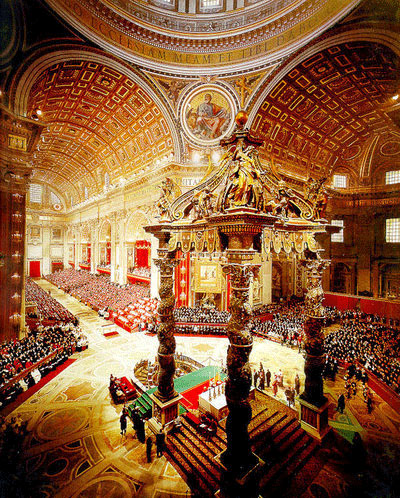
WORDS OF WARNING:
[Romans] is not a letter written to generic Gentiles. These words are given to the saints in Rome. “To all that be in Rome, beloved of God, called to be saints” (Rom. 1:7). When he cautions them against hubris, why would he do this? He did it because he saw the first stirrings of it. Remember that Paul characteristically argues “one of you will say then,” and he does this because he knows how the Q&A sessions usually go. And what happens here? “God cut out the Jews to make way for us Romans” (v. 19). Remember that this was the capital city of the most powerful empire in the world. Anyone who thinks that Christians don’t get caught up by this kind of reflected glory need to ask more pointed questions of their sinful hearts. The Lord spurned the devil’s offer of all the kingdoms of men in their glory—His followers have not always been so successful.
Continue reading
Comments Off | tags: Doug Wilson, Paul, Roman Catholicism, Romans | posted in Biblical Theology, Quotes
Jan
2
2010
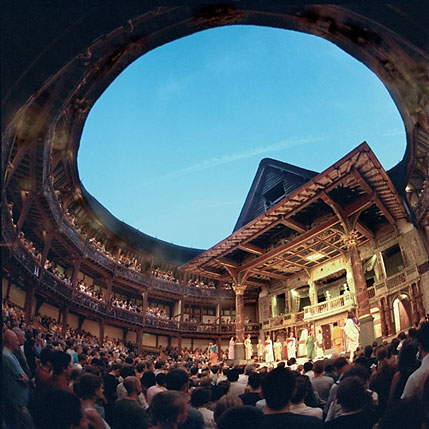
All the events of the Bible take place within a cosmic theatrical “stage,” one based on the structure of heaven. Like the Globe Theatre in Shakespeare’s era, an understanding of the symbolic significance of the physical elements in the literal, historical creation account in Genesis gives us incredible insights into the structure of many prophetic Bible passages and the order of many historical events. When we get to the Revelation, familiarity with this theatrical “set” is crucial to understanding its fulfilment in history.
Continue reading
Comments Off | tags: Baptism, Most Holy Place, Paul, Tabernacle, Tabernacle of David, Temple | posted in Biblical Theology, The Last Days, The Restoration Era
Dec
9
2009
Jesus built a new Tabernacle before He tore down the old one that was ready to pass away. This is the basis of His message to John in prison:
Continue reading
Comments Off | tags: Acts, Bible Matrix, Jericho, John the Baptist, Kelby Carlson, Paul, Tabernacle, Trumpets | posted in Biblical Theology, The Last Days
Dec
8
2009
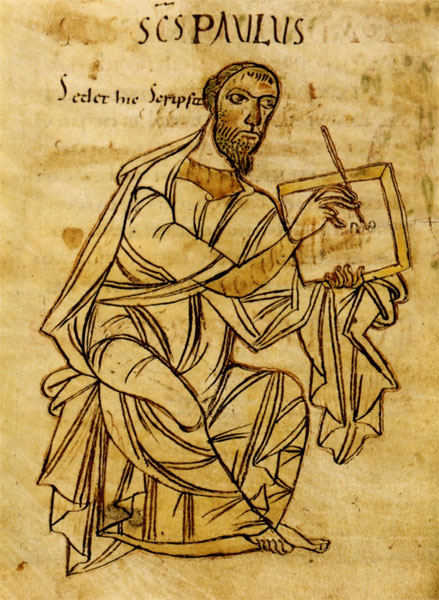
I say then, has God cast away His people? Certainly not! For I also am an Israelite, of the seed of Abraham, of the tribe of Benjamin. God has not cast away His people whom He foreknew. Or do you not know what the Scripture says of Elijah, how he pleads with God against Israel, saying, ”LORD, they have killed Your prophets and torn down Your altars, and I alone am left, and they seek my life”? But what does the divine response say to him? “I have reserved for Myself seven thousand men who have not bowed the knee to Baal.” Even so then, at this present time there is a remnant according to the election of grace. Romans 11:1-6
Romans 11 is one of those watershed passages. How one interprets it depends on one’s “plan of the ages” paradigm. If you haven’t read James Jordan’s The Future of Israel Re-examined, you need to. Due to its ramifications for interpretation of much of the New Testament, I believe it should be recognised as one of the most important writings of our time. It puts Romans, and especially chapters 9-11, fairly and squarely within a first century context. All would be fulfilled before AD70. God would make “a short work” in the Land. And He did.
It also helps with the interpretation of Revelation. Christ was a new Moses, just as Elijah was. He ascended and gave a double portion of His Spirit to the church as Elisha. The new body witnessed to Gentiles to provoke the hard-hearted Jews to jealousy. This has nothing to do with our day. It was a process confined to the end of the Old Covenant.
Continue reading
Comments Off | tags: Balaam, Hermeneutics, Herod, James Jordan, Jezebel, Paul, Romans | posted in The Last Days
Oct
29
2009
Open Ark – Light – Sabbath
Behold, I tell you a mystery:
Open Veil – Firmament – Passover (Midnight)
We shall not all sleep,
Continue reading
3 comments | tags: Corinthians, Feasts, Literary Structure, Paul, Resurrection | posted in Biblical Theology, The Last Days
Oct
24
2009
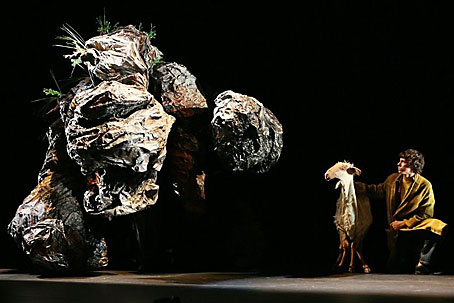
“…all drank the same spiritual drink. For they drank of that spiritual Rock that followed them, and that Rock was Christ.” 1 Cor 10:4
There is a well-known Australian children’s novel called The Nargun and the Stars based on an aboriginal legend. The Nargun is a living creature but it looks like a big rock. It doesn’t move much, but it when it does it is ferocious.
What is Paul going on about here? Discounting the various Jewish fables and Christian legends surrounding both the original wilderness texts and Paul’s words here, what is his meaning? Could the structure of the passage give us a clue?
Continue reading
2 comments | tags: Corinthians, Herod, Literary Structure, Numbers 5, Paul | posted in Biblical Theology, The Last Days

































